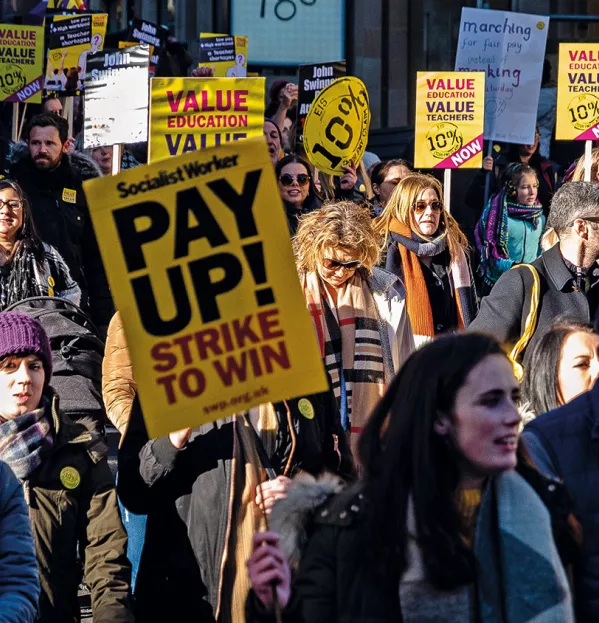Teachers, generally, are pretty patient people, right? It takes a lot to keep calm and carry on when the little cherubs in your class won’t do what you say - despite you repeating it 15 times.
But it seems that, after a year of pay negotiations, patience is wearing pretty thin. So much so that the national council of Scotland’s largest teaching union has approved the opening of a statutory strike ballot over pay.
If the industrial action goes ahead, it will be Scotland’s first national teacher-led strike since the 1980s. Unions say teachers’ pay has fallen by 20 per cent in real terms in the past 10 years, and that a significant increase is urgently needed to boost recruitment and retention and show teachers that they’re valued.
EIS general secretary Larry Flanagan said ballot papers would be issued this month. “Clearly, once the actual ballot is underway, negotiations are suspended, but prior to that we remain prepared to consider any improved pay offer. No offer has been forthcoming from our local authority employers, however.
“Teachers have demonstrated time and time again their support for our Value Education, Value Teachers campaign, which is about more than just pay.”
In October, 30,000 people marched in Glasgow in support of the union’s demand for a universal pay increase of 10 per cent.
Education secretary John Swinney said he had made a new proposal to the EIS last week, which would see teachers receive a minimum 9 per cent increase between January 2018 and April 2019, with a further 3 per cent rise in April 2020.
Swinney said that, once he had agreement from Cosla, the local authorities body, he would formally offer it to unions on 25 January. “Industrial action is in no one’s interests, not least our children and young people,” he added.
